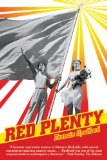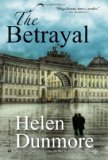Summary | Excerpt | Reading Guide | Reviews | Beyond the book | Read-Alikes | Genres & Themes | Author Bio

Former state security officer Leo Demidov is struggling to change as the Soviet Union changes around him. The two young girls he adopted have yet to forgive him for his part in the death of their parents, and they are not alone; now that the truth is out, Leo and his family are in grave danger from someone consumed by the dark legacy of Leo's past.
Tom Rob Smith - the author whose debut, Child 44, has been called "brilliant" (Chicago Tribune), "remarkable" (Newsweek) and "sensational" (Entertainment Weekly) - returns with an intense, suspenseful new novel: a story where the sins of the past threaten to destroy the present, where families must overcome unimaginable obstacles to save their loved ones, and where hope for a better tomorrow is found in the most unlikely of circumstances . . .
The Secret Speech
Soviet Union, 1956. Stalin is dead, and a violent regime is beginning to fracture - leaving behind a society where the police are the criminals, and the criminals are innocent. A secret speech composed by Stalin's successor Khrushchev is distributed to the entire nation. Its message: Stalin was a tyrant. Its promise: The Soviet Union will change.
Facing his own personal turmoil, former state security officer Leo Demidov is also struggling to change. The two young girls he and his wife Raisa adopted have yet to forgive him for his part in the death of their parents. They are not alone. Now that the truth is out, Leo, Raisa, and their family are in grave danger from someone consumed by the dark legacy of Leo's past career. Someone transformed beyond recognition into the perfect model of vengeance.
From the streets of Moscow in the throes of political upheaval, to the Siberian gulags, and to the center of the Hungarian uprising in Budapest, The Secret Speech is a breathtaking, epic novel that confirms Tom Rob Smith as one of the most exciting new authors writing today.
One has the feeling that the author has tried to cover too much territory in this single volume. He addresses not only the Secret Speech and its impact, but prison ships, gulags, the rise of the vory-v-zakone and the Hungarian Revolution of 1956. ... The biggest criticism that The Secret Speech is likely to contend with is that it's simply not as strong a novel as the first book in the series. Nevertheless, those who enjoyed Child 44 will mostly find their time well spent with The Secret Speech, and will have the third volume in this planned trilogy to look forward to...continued
Full Review
(982 words)
This review is available to non-members for a limited time. For full access,
become a member today.
(Reviewed by Kim Kovacs).
The vory developed a complex series of coded tattoos that are still employed by the vory today. The tattoos have a bluish color and are blurred-looking due to the poor quality implements used to create them. Ink inside the prisons is usually created by burning the heel of a shoe and mixing the soot with urine and shampoo. The tattoos often cause infection which, in the harsh gulag conditions of the past and the usually appalling prison conditions of today, frequently result in death.
 The vory tattoo was (and is) a sort of business card for the bearer. They detail a person's entire life, including where he is from, which prisons he has spent time in and for what crimes, and how many people he's killed. They're also an indication of rank...
The vory tattoo was (and is) a sort of business card for the bearer. They detail a person's entire life, including where he is from, which prisons he has spent time in and for what crimes, and how many people he's killed. They're also an indication of rank...
This "beyond the book" feature is available to non-members for a limited time. Join today for full access.

If you liked The Secret Speech, try these:

by Francis Spufford
Published 2012
Red Plenty is history, it's fiction, it's as ambitious as Sputnik, as uncompromising as an Aeroflot flight attendant, and as different from what you were expecting as a glass of Soviet champagne.

by Helen Dunmore
Published 2011
A riveting and emotionally absorbing portrait of post-war Soviet Russia, a world of violence and terror, where the severest acts of betrayal can come from the most trusted allies.
On the whole, human beings want to be good, but not too good and not quite all the time
Click Here to find out who said this, as well as discovering other famous literary quotes!